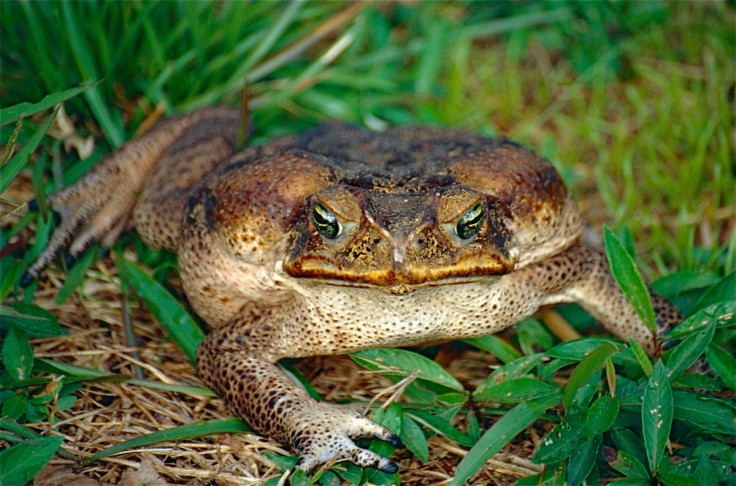Australia: Varanid lizards trained to hate the taste of toxic cane toads by feeding them babies

Varanid lizards in Australia have been trained not to eat toxic adult cane toads through aversion training. The lizards were offered baby cane toads (which are a lot less lethal) to put them off eating the more toxic and deadly adults.
Cane toads in Australia are an invasive species that has caused widespread declines to native species. In the east Kimberley region, the yellow-spotted monitor or floodplain goanna are highly vulnerable to toad toxins and have suffered severe population declines as a result of the "toad invasion", researchers wrote in the Royal Society's Biology Letters. This, they add, has caused major shifts in the abundance of native vertebrates in the region.
In a bid to combat the problem of the cane toads, scientists exposed the lizards to these young cane toads, which led to a response similar to food poisoning – the experience was negative, but the lizards did not die. As a result of this training, the lizards remembered and would avoid larger cane toads when they came across them.
The team spent two years training lizards and found a vast increase in survival rates. After 18 months, just one of the 31 untrained lizards had survived for more than 110 days. In comparison, nine of the 16 trained lizards had survived – the longest survival being 482 days.

They wrote: "Our study provides the first evidence, to our knowledge, that CTA (conditioned taste aversion) training of free-ranging predators can buffer the impact of invasive cane toads, and that the effect can persist over a long period ... Goannas rapidly learned taste aversion and importantly, this aversion was generalized: goannas avoided adult cane toads (often more than 300g mass) in the wild after being exposed to juvenile toads (less than 25 g)."
They noted that cane toads rarely reproduce, so lizards hardly ever encounter juveniles. They said if just a few of the trained lizards survived long enough, later generations could end up learning to avoid cane toads on their own.
"Our study provides the proof of principle required to set the framework for an innovative method of conservation. Encountering a small live cane toad can change a predator's behaviour in ways that protect it from subsequent encounters with large cane toads. Releasing small toads, then, can offer a simple landscape-scale method to conserve wildlife populations, by giving native predators an opportunity to learn rather than die. Our study provides the first real evidence that this strategy is realistic."
© Copyright IBTimes 2025. All rights reserved.






















